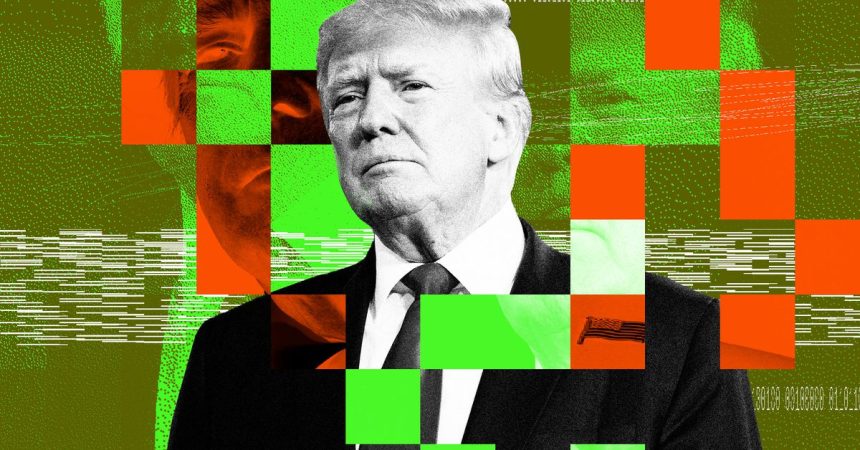The impending meetings between President-elect Donald Trump and two tech titans, Google CEO Sundar Pichai and Amazon CEO Jeff Bezos, have ignited speculation about the future relationship between the incoming administration and the tech industry. These meetings come on the heels of a complex and often strained relationship between Trump and these companies, particularly Google, during his previous term. Pichai’s visit to Trump’s Palm Beach resort, scheduled for Thursday, has raised eyebrows given Trump’s past accusations of Google’s search engine being biased against him. While the exact agenda of the meeting remains undisclosed, sources indicate that Pichai is unlikely to directly address the ongoing antitrust lawsuit against Google or other regulatory matters. However, the meeting presents an opportunity for both parties to reset their relationship and potentially establish a framework for future interactions.
Trump’s previous pronouncements about Google, including his threat to “do something” about the company and his claims of bias in search results, have created a tense atmosphere between the tech giant and the incoming administration. Pichai’s recent confirmation of phone calls with Trump, while downplaying any connection to antitrust issues, further fuels speculation about the true purpose of the upcoming meeting. The timing of the meeting, shortly after Trump’s electoral victory, suggests a strategic move by both parties to address outstanding concerns and potentially lay the groundwork for a more cooperative relationship going forward. The absence of official comments from Google regarding the visit adds to the intrigue surrounding the meeting’s objectives.
Bezos’s scheduled meeting with Trump the following week further complicates the narrative. Despite a publicly contentious relationship with the former president, marked by Trump’s accusations of unfair business practices and his attacks on Amazon’s relationship with the US Postal Service, Bezos has expressed optimism about the future. This optimistic outlook, seemingly at odds with the past animosity, raises questions about the potential for a rapprochement between Amazon and the Trump administration. The meeting offers a chance for Bezos to directly address Trump’s concerns and potentially negotiate a more amicable relationship going forward. The contrast between the previous tension and Bezos’s current optimism suggests a potential shift in dynamics and a willingness to find common ground.
The backdrop of these meetings is the ongoing debate about the appropriate level of government regulation for the tech industry. Trump’s previous rhetoric suggests a more interventionist approach, while both Google and Amazon have advocated for a less restrictive regulatory environment. These differing viewpoints create a potential for conflict, but the meetings also present an opportunity for dialogue and compromise. The outcomes of these meetings could significantly shape the future regulatory landscape for the tech industry, influencing everything from antitrust enforcement to data privacy regulations. The meetings are therefore not just about personal relationships but also about the future direction of tech policy.
The significance of these meetings extends beyond the immediate interactions between Trump and the tech CEOs. They represent a critical juncture in the ongoing dialogue between the government and the tech industry, a dialogue that will shape the future of innovation and competition in the digital economy. The meetings provide a platform for both sides to articulate their visions for the future of the tech industry and to explore potential avenues for collaboration. The outcome of these discussions could have far-reaching consequences, impacting not only the companies involved but also the broader tech landscape and the consumers who rely on these platforms.
Ultimately, the success of these meetings will depend on the willingness of both sides to engage in constructive dialogue and to find common ground despite their past differences. The meetings represent an opportunity to reset the relationship between the incoming administration and the tech industry, to address outstanding concerns, and to establish a framework for future cooperation. The world will be watching closely to see if these meetings can bridge the divide and pave the way for a more productive and harmonious relationship between government and the tech giants. The future of tech policy, and indeed the future of the digital economy, may well hinge on the outcomes of these critical encounters.



